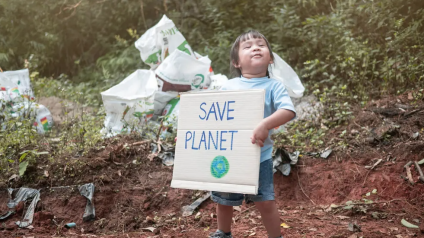Even giving credits to Paris Agreement, climate change will account for 3.3% of GDP. With actual climatic policies, will be 4%. The S&P analysis conducted on 135 countries.
Today heat waves in Europe delete the 0.5% of GDP
(Sustainabilityenvironment.com) – In the next thirty years, the 4% of GDP can go up in smoke due to climate change. The most disadvantaged countries will pay the highest price. S&P analysis, conducted on 135 countries, predicts to absorb the economic impact of climate change. On the other hand, even today, climate crisis is demonstrating its consequences. Over the last 10 years, extreme weather events have account for 0.3% of GDP each year. Only in Europe, recent heat waves have cost us between 0.3 and 0.5% of GDP.
“Climatic hazards, like storms, floods, fires and heat waves, can influence the wealth of countries through direct damages to their physical capital stock and potential income flow – for instance, the heat waves can reduce work productivity”, explains the report. In addiction to the economic impact of direct climate change, S&P tries to estimate its ramifications by considering the impact on revenue, public finance, society and the ability of states to govern.
What are the scenarios waiting for us because of climate change?
Without big changes in climatic policies, by 2050 we could lose 4% of global GDP. If we take as a reference the politic scenario RCP2.6, in which it is assumed that the world respects Paris agreement, there’s still a decrease but more contained, of 3.3%. If we do not provide adaptation measures (scenario RCP8.5) the loss will be 4.5%.
Read also Environmental impact: the demand for finance to 10 thousand companies
Economic impact of climate change changes from region to region. The repercussions will be felt more in South Asia, where between 10 and 18% of GDP. High danger also for Central Asia, Middle East and North Africa, and sub-Saharan Africa. In general, low- and medium-low- income will suffer most: for them, the impact will be 3.6 times greater than richer countries.













